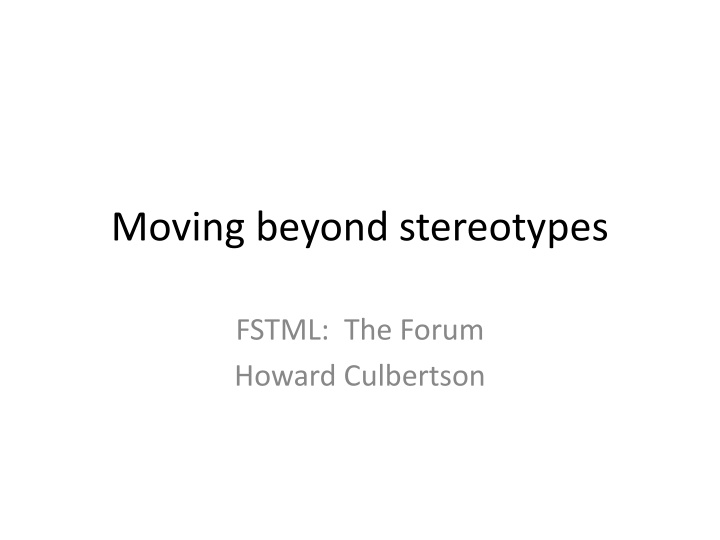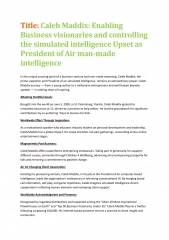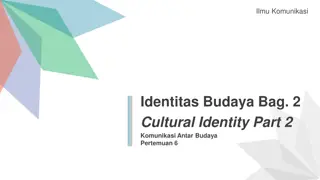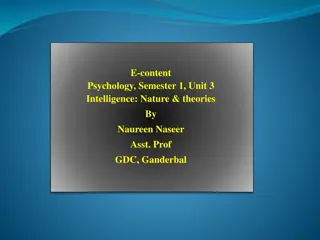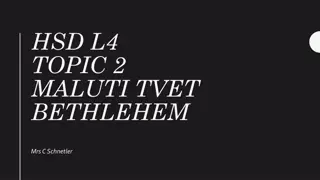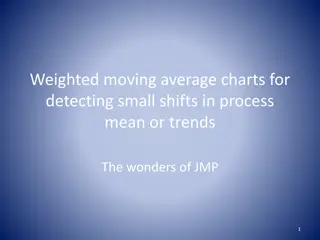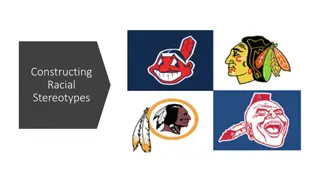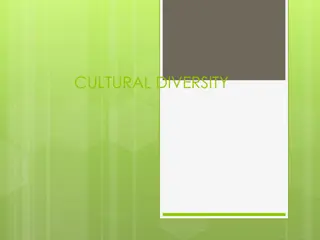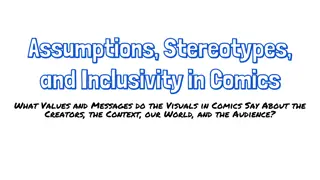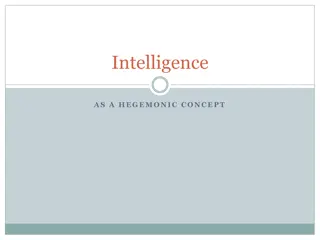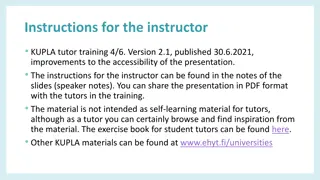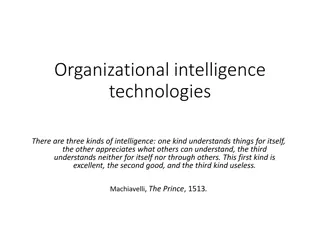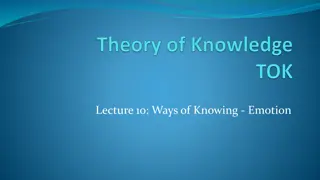Embracing Cultural Intelligence: Moving Beyond Stereotypes
Explore the complexities of culture, interpersonal dynamics, and cultural intelligence through the lens of individuals like Paul N.Wolfskill. Discover how culture influences behaviors and perceptions, and how developing cultural intelligence can bridge gaps and foster understanding.
Download Presentation

Please find below an Image/Link to download the presentation.
The content on the website is provided AS IS for your information and personal use only. It may not be sold, licensed, or shared on other websites without obtaining consent from the author.If you encounter any issues during the download, it is possible that the publisher has removed the file from their server.
You are allowed to download the files provided on this website for personal or commercial use, subject to the condition that they are used lawfully. All files are the property of their respective owners.
The content on the website is provided AS IS for your information and personal use only. It may not be sold, licensed, or shared on other websites without obtaining consent from the author.
E N D
Presentation Transcript
Moving beyond stereotypes FSTML: The Forum Howard Culbertson
What do I do with Paul NWolfskill? He s got a big heart . . . . BUT He s boisterous. He s loud. He wants to get things done NOW He even steps on the toes of fellow Americans
Culture? Paul Wolfskill and many other people think of culture as classical music, art and the use of good grammar and syntax.
Culture is what makes you a stranger when you are away from home
Defining culture 1. Philip Bock What makes you a stranger when you re away from home 2. Ruth Benedict learned patterns 3. Charles Kraft Complex, integrated coping mechanism 4. Bob Sjogren -- What makes us us and them them
From Gary Weaver in Culture, Communication and Conflict: Readings in Intercultural Relations
Developing Cultural Intelligence (or CQ = cultural quotient) Too much / too little? Limited time for cultural orientation Anthropologist George Murdock s 70 cultural universals
age-grading athletic sports bodily adornment calendar cleanliness training community organization cooking co-operative labor cosmology courtship dancing decorative art divination division of labor dream interpretation education eschatology ethics ethno-botany etiquette faith healing family feasting fire-making folklore food taboos funeral rites games gestures gift-giving government greetings hair styles hospitality housing hygiene incest taboos inheritance rules joking kin groups kinship nomenclature language law luck / superstitions magic marriage mealtimes medicine obstetrics penal sanctions personal names population policy postnatal care pregnancy usages property rights propitiation of supernatural beings puberty customs religious ritual residence rules sexual restrictions soul concepts status differentiation surgery tool-making trade visiting weather control weaving
The why of Cultural Intelligence Missionaries will learn new things every day including new foods and new customs that they are not used to. When they come back, they will be able to teach others what to do and not to do in that country so they will not upset anyone. student in introductory missiology class
The why of Cultural Intelligence Missionaries will learn new things every day including new foods and new customs that they are not used to. When they come back, they will be able to teach others what to do and not to do in that country so they will not upset anyone. student in introductory missiology class
Appropriate input Example: Team and Haitian child
Appropriate input Example: Team and Haitian child Avoid obvious problems Oh, that s different
Appropriate input Example: Team and Haitian child Avoid obvious problems Oh, that s different Toilet paper issues
Appropriate input Example: Team and Haitian child Avoid obvious problems Oh, that s different Toilet paper issues
Goal: Embrace (rather than simply staying out of trouble) Focus on attitude more than actions Key words Aware Curious Sensitive
